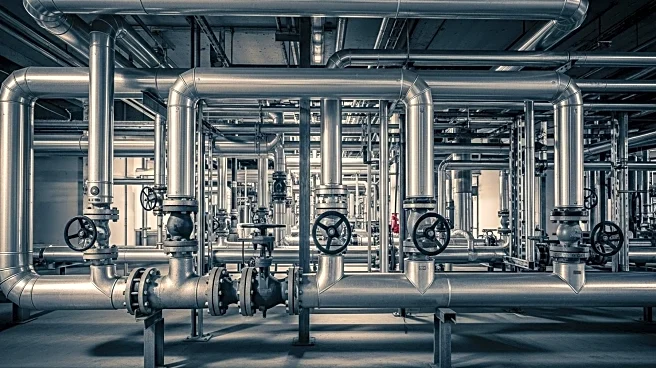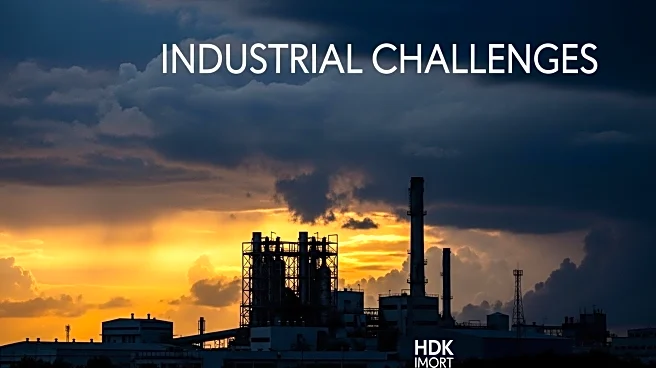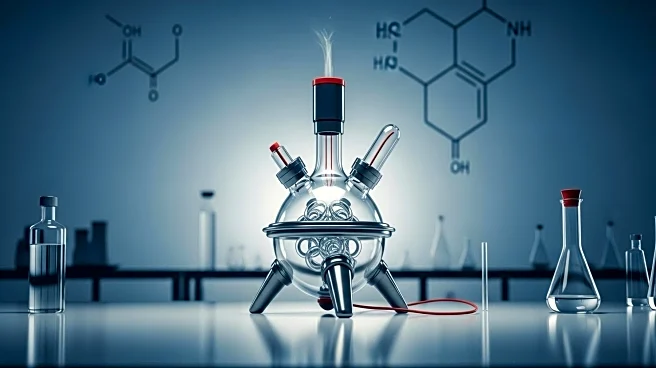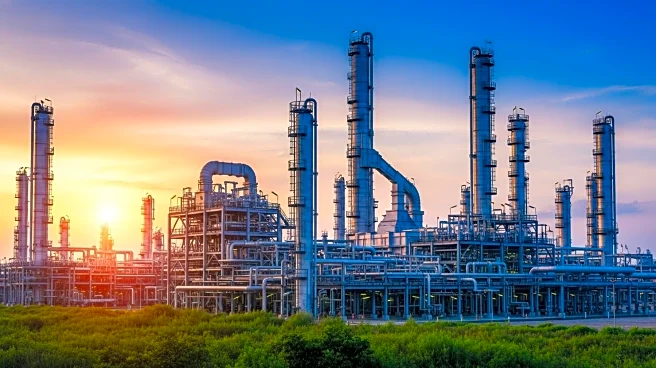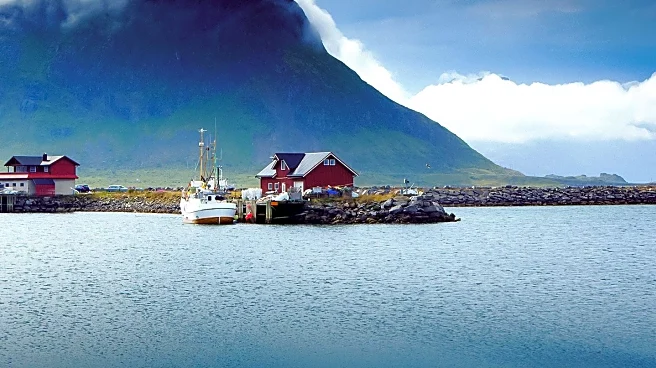What's Happening?
Sir Jim Ratcliffe, Founder and Chairman of INEOS, has called for urgent political intervention to save Europe's chemical industry. In a recent interview, Ratcliffe highlighted the critical state of the industry, which is facing significant challenges due to high energy costs and carbon taxes. He warned that without immediate action, Europe could lose half of its ethylene production capacity by 2030, with 21 major chemical sites already shutting down. The industry, valued at 700 billion euros and employing 5 million people, is at risk of being driven out of global markets due to self-imposed costs. Ratcliffe emphasized the strategic importance of the chemical industry, which supports various sectors including water treatment, transport, health, and defense.
Why It's Important?
The potential collapse of Europe's chemical industry could have far-reaching consequences for the continent's economy and security. As the fourth largest industry in Europe, chemicals are integral to the production of numerous essential goods. The loss of this industry would increase Europe's dependency on imports, affecting strategic sectors and potentially compromising national security. Additionally, the shift to imports from countries like China and the US could undermine Europe's net zero ambitions by increasing carbon emissions due to longer transportation distances. Ratcliffe's call for removing green taxes, scrapping carbon taxes, and implementing tariff protection highlights the urgent need for policy changes to preserve the industry's viability.
What's Next?
Ratcliffe has outlined three urgent actions for European politicians: removing green taxes from energy costs, scrapping carbon taxes, and providing tariff protection. These measures are aimed at leveling the playing field for European chemical producers against their global counterparts, particularly in the US and China, where production is expanding. The response from European leaders will be crucial in determining the future of the industry. Failure to act could result in further closures and job losses, while successful intervention could stabilize the industry and secure its role in Europe's economy.
Beyond the Headlines
The situation underscores the broader challenges faced by industries in balancing environmental goals with economic competitiveness. The chemical industry's plight highlights the tension between achieving net zero targets and maintaining industrial viability. The debate over green taxes and carbon levies reflects wider discussions on sustainable economic policies and the need for strategic planning to ensure long-term industrial health.


